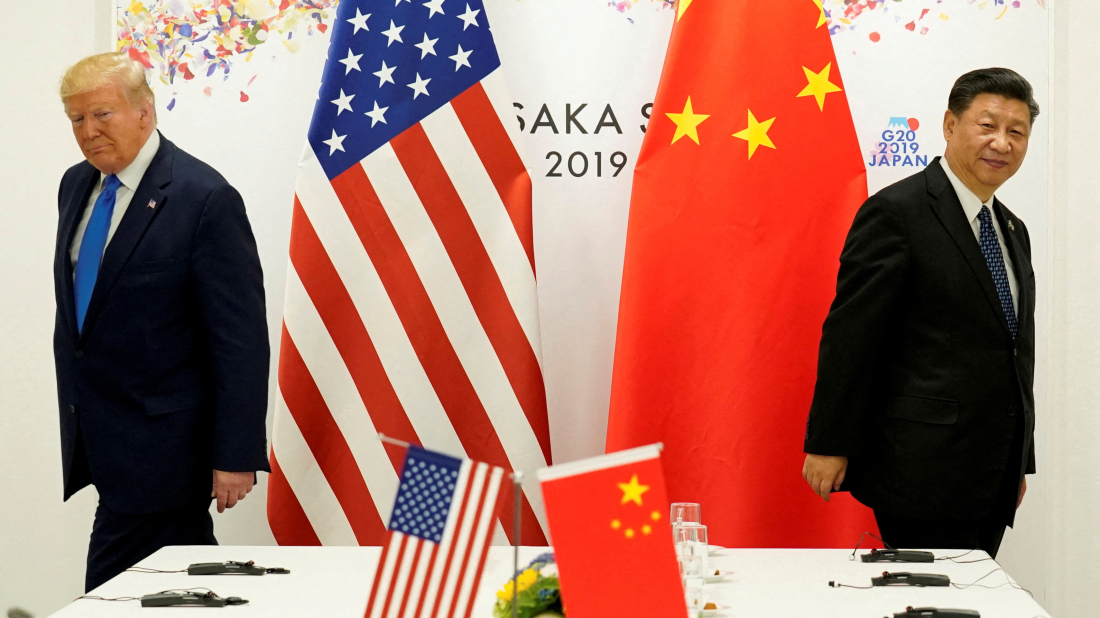Pentagon threatens to label Anthropic ‘supply chain risk’ over AI limits
The Pentagon has threatened to designate artificial intelligence firm Anthropic as a “supply chain risk” amid a dispute over the military use of i...

Analysts say that when U.S. President-Elect Donald Trump takes office in January, tension areas are expected in trade, technology and geopolitical conflicts.
After Donald Trump's victory in the 2024 U.S. presidential election, experts from various think tanks anticipate a further deterioration in U.S.-China relations, continuing the hardline stance from his previous administration. Analysts highlight several key areas where tensions are expected to rise, with a focus on trade, technology, and geopolitical conflicts.
According to experts at Chatham House, London, Trump's return could lead to a resumption of the aggressive trade policies that characterized his first term, including high tariffs on Chinese goods. Trump's administration may push for stricter measures aimed at decoupling the U.S. economy from China's, particularly in critical sectors like technology and pharmaceuticals. This aligns with Trump's previous rhetoric of bringing manufacturing back to America and reducing reliance on Chinese supply chains.
Analysts from the Hudson Institute and other think tanks predict an increase in military posturing, especially around Taiwan. During his campaign, Trump hinted at reducing U.S. security commitments in East Asia unless allies contribute more to their defense. This shift could embolden China to take a more assertive stance on Taiwan, potentially increasing the risk of a military conflict in the region.
Trump's potential pivot from Biden's explicit support for Taiwan could lead to a strategic ambiguity similar to his earlier stance, which would create uncertainty in the region and could destabilize the delicate balance of power in the South China Sea.
The technology war between the U.S. and China is likely to intensify under a renewed Trump administration. Experts at the Center for Strategic and International Studies (CSIS) highlight that Trump has previously targeted Chinese tech giants like Huawei and TikTok, and his return could bring about even stricter controls on technology transfers and data security.
China's government, anticipating a tougher U.S. stance, is reportedly preparing policies to reduce dependence on American technology, focusing on self-reliance in semiconductors, AI, and cybersecurity measures. This suggests a deepening of the technological divide between the two superpowers.
Think tanks such as the Brookings Institution note that Trump's “America First” foreign policy could reshape alliances, potentially weakening the collective Western response to China's rise. However, Trump's hardline approach may push U.S. allies in Asia, such as Japan, South Korea, and Australia, to strengthen their own defenses against China's regional ambitions. Conversely, China's strategy under Xi Jinping is expected to focus on strengthening its global partnerships, especially through initiatives like the Belt and Road. Beijing might leverage Trump's unpredictable policies to position itself as a more stable global partner to other nations, especially in Europe and the Global South.
Think tank experts agree that Trump's return to the presidency will likely exacerbate U.S.-China tensions, particularly in the areas of trade, technology, and military strategy. This renewed rivalry is expected to influence global geopolitics, prompting both countries to bolster their alliances and prepare for a prolonged period of strategic competition.
Iran’s Supreme National Security Council Secretary Ali Larijani said the United States could evaluate its own interests separately from those of Israel in ongoing negotiations between Tehran and Washington.
U.S. Secretary of State Marco Rubio on Sunday (15 February) called it “troubling” a report by five European allies blaming Russia for killing late Kremlin critic Alexei Navalny using a toxin from poison dart frogs.
Ukrainian President Volodymyr Zelenskyy said on Saturday that Russia’s decision to change the leadership of its delegation for upcoming peace talks in Geneva appeared to be an attempt to delay progress.
Cuba’s fuel crisis has turned into a waste crisis, with garbage piling up on most street corners in Havana as many collection trucks lack enough petrol to operate.
Norway is holding a commanding lead in the medal standings with 12 golds and a total of 26, with Italy having an historic performance on home soil on the ninth day of the Milano-Cortina Winter Olympics on Sunday (15 February).
The Pentagon has threatened to designate artificial intelligence firm Anthropic as a “supply chain risk” amid a dispute over the military use of its Claude AI model, according to a report published Monday.
Representatives of Ukraine, Russia and the United States are set to meet in Geneva for a third round of trilateral negotiations aimed at ending the nearly four-year war, even as both sides intensify military pressure on the ground.
The Prime Minister, Mark Carney, announced on 16 February that the Honourable Janice Charette has been appointed as the next Chief Trade Negotiator to the United States.
Cuba’s fuel crisis has turned into a waste crisis, with garbage piling up on most street corners in Havana as many collection trucks lack enough petrol to operate.
Day 10 of the Milano Cortina 2026 Winter Olympics delivered high-stakes semifinals, dramatic finishes and classic podium moments across Milan and the Italian Alps. Photographers captured split seconds of symmetry before puck drops, explosive turns on the ice and triumphant celebrations.
You can download the AnewZ application from Play Store and the App Store.

What is your opinion on this topic?
Anonymous
Very well written, let's see how this unfolds.